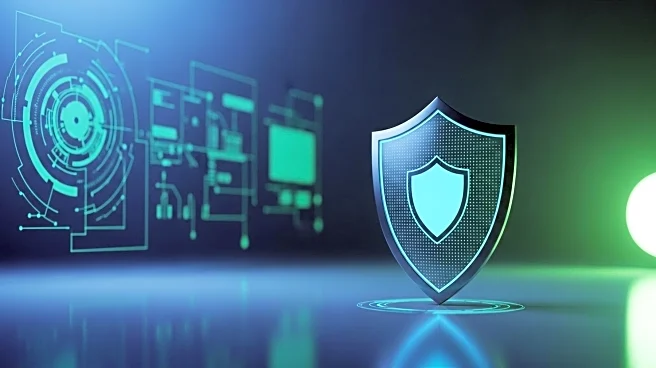What's Happening?
Three major cybersecurity vendors, Microsoft, SentinelOne, and Palo Alto Networks, have decided not to participate in the 2025 MITRE Engenuity ATT&CK Evaluations. This decision follows Microsoft's announcement in June, with SentinelOne and Palo Alto confirming their withdrawal in September. These companies performed well in the 2024 evaluations, with Microsoft topping the rankings, SentinelOne placing fifth, and Palo Alto twelfth. The vendors cited a focus on product innovation and customer-centric initiatives as reasons for their withdrawal. The move has sparked concerns about the future and relevance of the MITRE evaluations, which have been a standard in the cybersecurity industry since their inception in 2019.
Why It's Important?
The withdrawal of these key players from the MITRE evaluations could signal a shift in how cybersecurity vendors prioritize their resources. The evaluations have been seen as a benchmark for security solutions, but the decision to pull out may indicate a growing perception that the tests are more promotional than beneficial for real security improvements. This could impact the industry's approach to product development and innovation, as vendors may choose to allocate resources to initiatives that directly address evolving threats rather than participating in standardized tests. The absence of these major vendors might also affect the credibility and influence of the MITRE evaluations in the cybersecurity community.
What's Next?
MITRE plans to re-establish its vendor forum for the 2026 evaluations, aiming to better align the test objectives with industry needs. This move could help regain vendor participation and ensure the evaluations remain relevant and beneficial. Meanwhile, the cybersecurity community will be watching closely to see if other vendors follow suit in withdrawing from the evaluations, potentially leading to a reevaluation of how industry standards are set and measured.
Beyond the Headlines
The decision by these vendors to withdraw highlights a broader industry challenge: balancing the need for rigorous testing with the practical demands of product development. As cybersecurity threats evolve, vendors must continuously innovate to stay ahead, which may require shifting focus away from traditional evaluation methods. This situation underscores the importance of adaptive testing frameworks that can accommodate the dynamic nature of cybersecurity threats.











